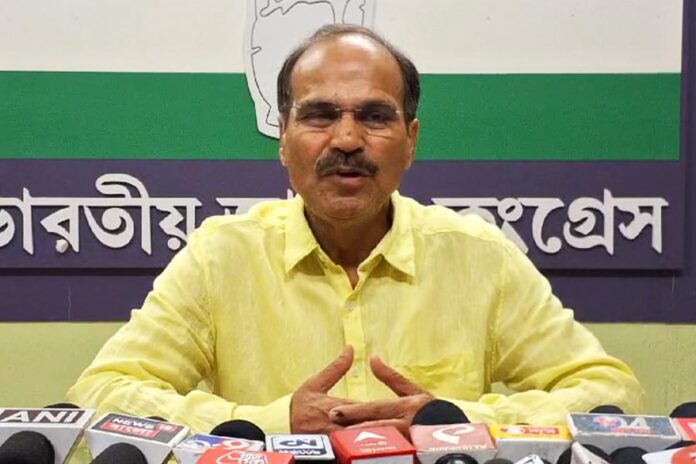New Delhi [India]: Congress leader Adhir Ranjan Chowdhury has written to Prime Minister Narendra Modi, raising concerns about the alleged harassment of Bengali-speaking students in schools across Delhi and other states. Chowdhury criticized ongoing drives targeting illegal migrants, stating that these efforts are unfairly affecting legitimate Bengali-speaking residents.
In his letter, Chowdhury highlighted the historical migration of Bengali-speaking people, particularly during the British era when the Bengal Presidency was the largest administrative division. He noted that many Bengali families permanently relocated to Delhi after the capital shifted from Calcutta to Delhi in 1911.
Referring to recent incidents, Chowdhury stated, “After the turmoil and change of government in Bangladesh, instances have come to light where officials are singling out Bengali-speaking students in schools, questioning them about their parents and origins.”
He accused the Municipal Corporation of Delhi of conducting targeted initiatives under state government directives to identify “illegal migrants from Bangladesh,” which he claimed has led to the undue harassment of poor Bengali-speaking families.
“My appeal is that the effort should always focus on identifying genuine Bangladeshi infiltrators and not harass a single Bengali migrant from West Bengal,” Chowdhury urged in his letter, requesting the Prime Minister’s intervention to protect Bengali-speaking students and their families from wrongful targeting.
Developments on Bangladesh Extradition Request
Separately, the Ministry of External Affairs (MEA) confirmed receiving a “Note Verbale” from the Bangladesh High Commission regarding an extradition request for ousted Prime Minister Sheikh Hasina. However, the MEA refrained from commenting further.
Bangladesh’s Interim Government Foreign Affairs Adviser, Touhid Hossain, confirmed the development, stating, “We have sent a Note Verbale to India requesting the return of Sheikh Hasina.”
Sheikh Hasina, who fled to India on August 5 after being ousted by a student-led movement, has accused Nobel Laureate and interim government leader Muhammad Yunus of orchestrating her removal. The protests, which began in early July, escalated into violent clashes, resulting in over 600 deaths.
In a statement on December 9, Hasina criticised the interim government, calling it “fascist” and alleging that it was depriving the Bangladeshi people of their rights. She also condemned the arrest of former ISKCON priest Chinmoy Krishna Das on sedition charges, arguing that his inability to receive legal defence reflected the absence of law and order in Bangladesh.
“The arrest of Chinmoy Krishna Das and the denial of legal representation is proof that Bangladesh doesn’t have law and order,” Hasina remarked.
The situation in Bangladesh remains volatile, with the international community closely monitoring the developments and potential implications of Hasina’s extradition.


